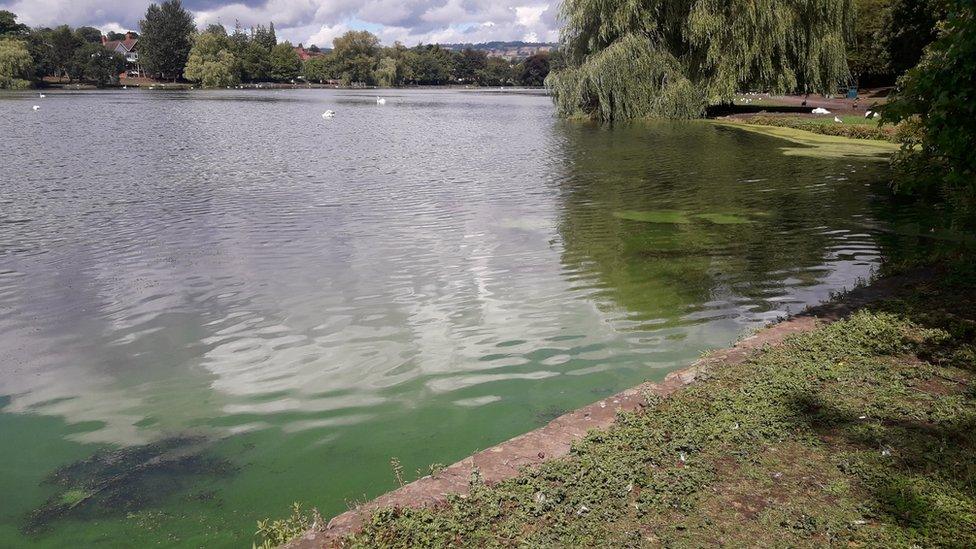Toxic blue-green algae warning for dog owners and swimmers
- Published
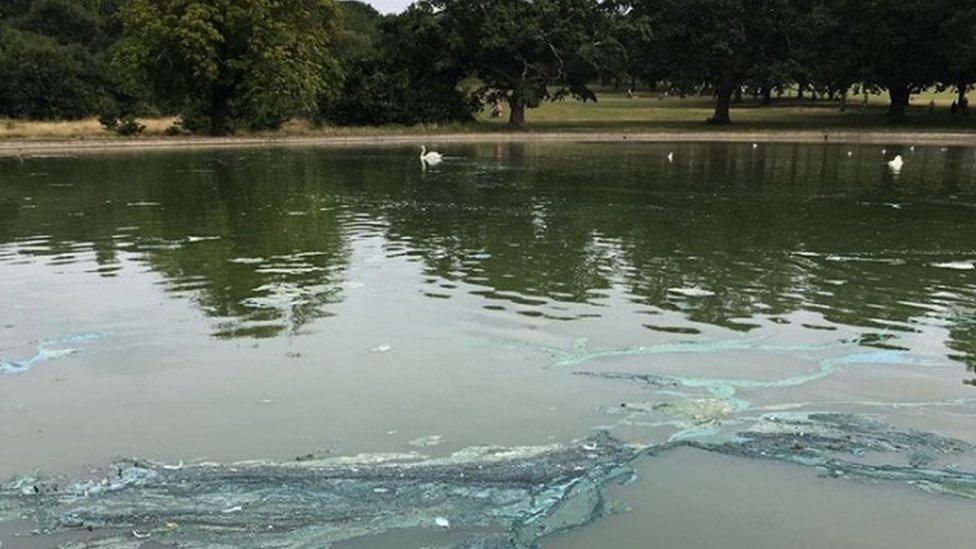
An outbreak of blue-green algae led to the closure of a boating lake in Southampton
Dog owners have been warned to take extra precautions while walking their pets amid a rise in reports of potentially toxic blue-green algae.
The British Veterinary Association (BVA) said it had seen an increase in reports including in Southampton, Edinburgh, Cornwall and Lincolnshire.
Contact with the algae can be fatal for animals if left untreated and can cause rashes and illness to humans.
The BVA urged owners to keep dogs on a lead around affected lakes and rivers.
It follows a number reports of dogs becoming ill or even dying after swimming in water suspected to be contaminated with blue-green algae.
In July, it was reported a King Charles Cavalier died after swimming in a lake at Delamere Forest, Cheshire, external, which was later closed because of the presence of blue-green algae, external.
Meanwhile, the RSPCA says a swan recovered from a lake containing algae in Southampton Common has died.
The bird was believed to be the mother of a pair of cygnets that were also rescued last week. One of the cygnets died and the other is undergoing rehabilitation.
Algae naturally occurs in inland waters such as rivers, streams and lakes and during long periods of warm weather it can multiply and form blooms.
Blue-green algae or cyanobacteria - a type of blooming algae - can produce toxins harmful to both humans and animals.
These toxins can be dangerous for animals if ingested, even in small quantities, the BVA said.
Dogs can swallow algae by drinking water from an affected lake, river or pond or when licking their fur after going for a swim, it added.
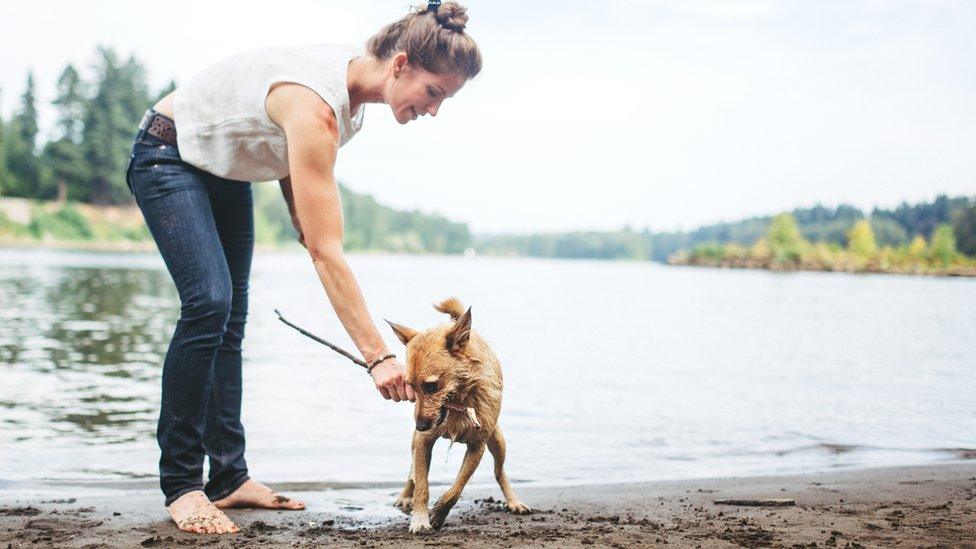
The BVA said symptoms can appear within a few minutes or hours, depending on the type of toxins ingested, and commonly include:
vomiting
diarrhoea
drooling
disorientation
trouble breathing
seizures
blood in faeces
If left untreated in animals, the toxins can cause liver damage and ultimately be fatal, the BVA said.
In humans, contact with skin or swallowing contaminated water can cause rashes, vomiting, stomach pains, fever and headaches. In rare cases, the algae can cause liver and brain damage.
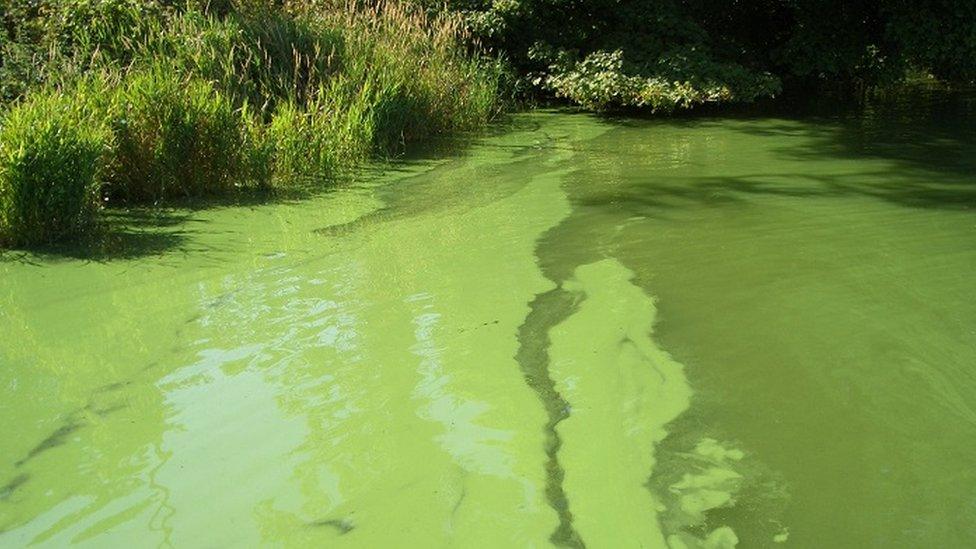
Algal blooms may be green, blue-green or greenish brown and can produce musty, earthy or grassy odours
It is not possible to tell whether an algal bloom is toxic by looking at it, so the Environment Agency says it is safest to assume it is. , external
It advises keeping pets and children away from affected water and avoiding contact with skin.
Public health advice, external says people who come into contact with water containing blue-green algae should shower with fresh water immediately and, if they become ill, seek medical attention.
BVA Junior Vice President Daniella Dos Santos said there was currently no known antidote for the toxins and prompt veterinary treatment was essential to ensure a good chance of recovery.
"If you suspect your dog has been exposed to blue-green algae, rush it to your local vet without delay," she added.
Daniel Start, author of Wild Swimming, advises people to check for blue-green algae before going into rivers and lakes, particularly the downwind side of lakes where it tends to accumulate.
He said if the algae is present people should find another spot to swim, with rivers generally less likely to be affected.

How to keep your dog safe
Look out for warning signs put up by the Environment Agency or local councils near water
Keep dogs on a lead and by your side around water known or suspected to have blue-green algae bloom - don't let them swim in it or drink from it
If your dog has been swimming outside, wash it thoroughly with clean water afterwards
Take your pet to a vet immediately if you are concerned it may have ingested toxic algae
Source: British Veterinary Association

- Published6 August 2019

- Published10 July 2019

- Published16 July 2018
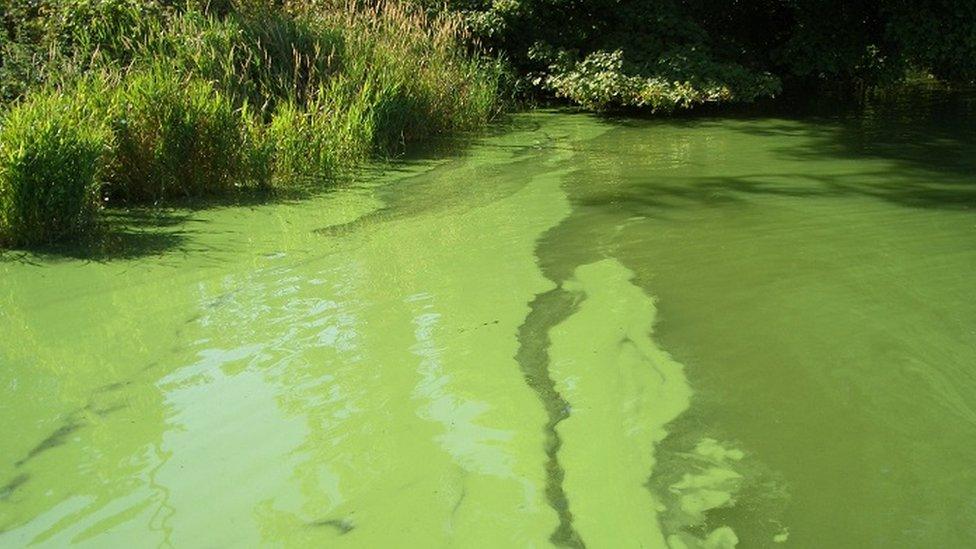
- Published16 August 2018
